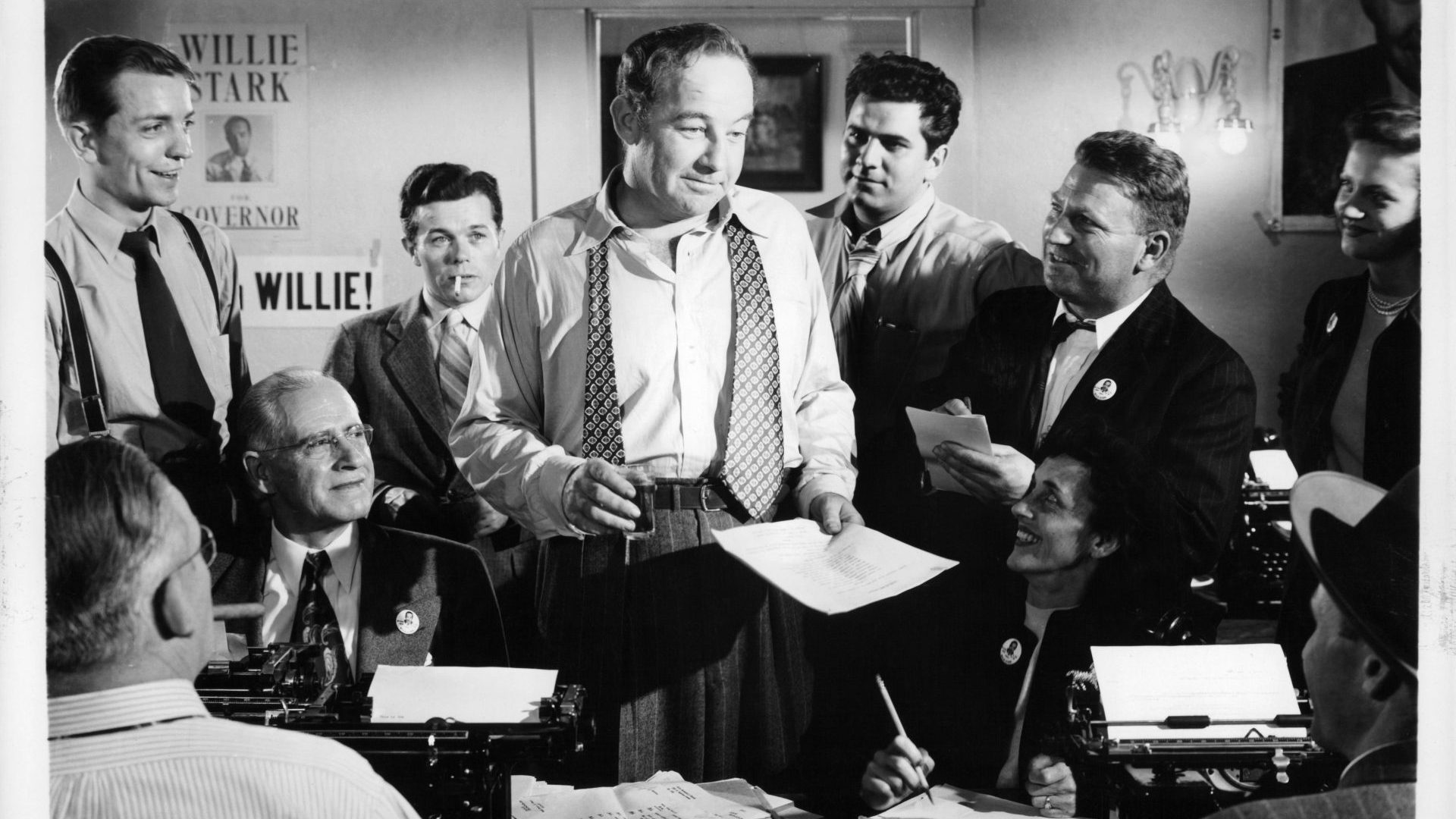For all the talk of individualism as part of the American psyche, at the root of it, is a yearning for safety. Certainty. Some people feel strongly that this “experiment” called “The United States” can live up to its name. But in many ways, and at many levels, the secret yearning of Americans is actually for a dictatorship – that is at the bottom of what we understand as America, though, of course, most would deny it.
You can see it in the reign of big city mayors, senators, and governors. Many Americans want to concentrate on their families, on their work and their dreams. Someone else can be in charge, so long as he – and it is always a “he” – is strong enough.
This is partly an explanation for the ascendancy and the very political existence of Donald Trump and it is also the main theme of Robert Rossen’s All the King’s Men (1949).
This picture is lightly based on a novel published the year before, which was based on the real-life assassination of a Southern governor who had become a demagogue and whose appeal to the people was based on him being the embodiment of the popular will. He is their retribution, their avenger.
The movie, shot in documentary-style black and white, was meant to star John Wayne, a witty and ironic bit of casting, but instead stars Broderick Crawford as Willie Stark.
Crawford’s Stark, in an unnamed Southern town, is newly awarded a law degree, one that he has worked hard for, maybe by studying at night. In other words he is the “ordinary Joe”, who ascends to dominate state politics.
Stark rises through his ability to appeal to what he openly calls “The hicks, the common people, the rude mechanicals” of his little town, of his state, of his country.
In Crawford’s Willie Stark, we see a man, who, if not on account of his accent, is a southerner up from the soil. He is not an aristocrat, but he nevertheless has the dictatorial air of a southern patriarch – an old Confederate demigod. His rallies, his haranguing, lead us for a time to think that he believes in what he says. At one point, the actor does an extraordinary thing: he looks directly at the camera after one hectic rally and practically winks at us, the audience. While the film’s documentary feel gives it a chilling reality, and Crawford is excellent, he won the Academy Award for best actor, it is Mercedes McCambridge who steals the show. She won as best supporting actress for her role as Stark’s enabler, and finally as a discarded woman. It is she who makes the film memorable.
That incredible presence and voice had to have been the reason that Orson Welles used Mercedes McCambridge in Touch of Evil (1958) as the leather-jacketed queen of the thugs who plague Janet Leigh and Charlton Heston.
But it is as the voice of the Demon in The Exorcist that she lives on.
Her power to rivet us is still there.
In All the King’s Men, she is mercurial, elastic, seeming to laugh at the whole thing. We believe her when she says casually towards the end that she, too, has been trapped. She, too, was discarded by Stark after she had done enough for him and been enough for him.
She is plain and she is also beautiful, graced by her extraordinary voice, hovering between male and female. It is a riveting instrument.
Her presence is also formidable and we come to rely on her to tell us and show us the truth. When she says that he used her and dumped her, we are surprised by this vulnerable admission, almost thrown away by the actor, but it stays with us. It’s a reminder to Americans that the dictator doesn’t work for the people – he uses them as a tool, and when he’s done with them, that’s it.




